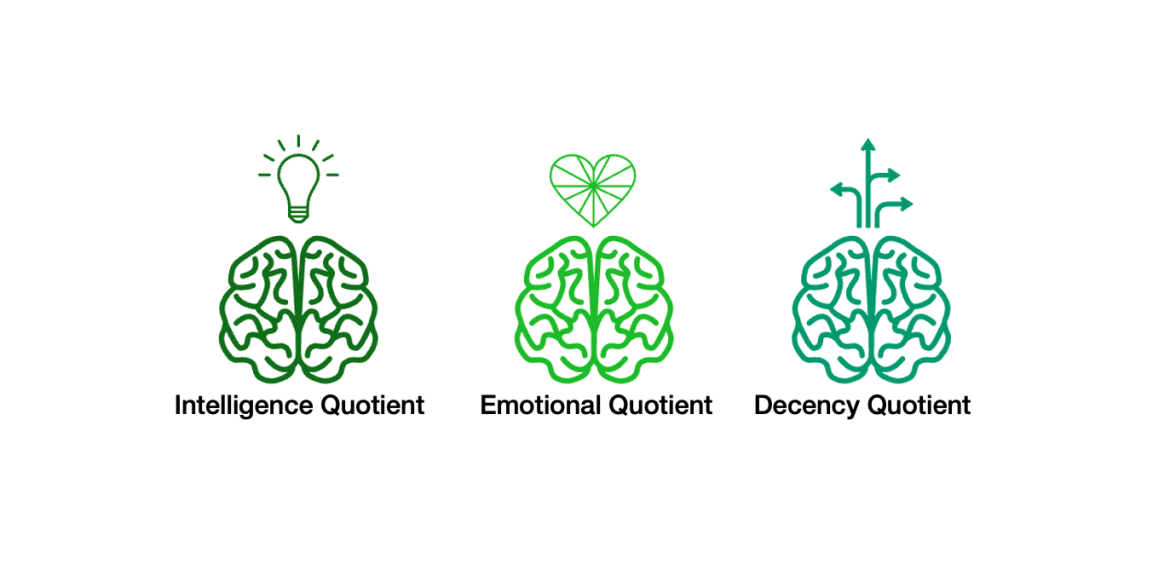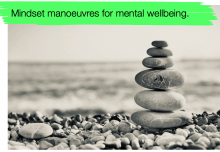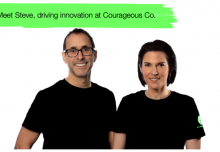
After IQ and EQ comes DQ
By Adam Daniel, Associate Consultant, Courageous Co.
Think it’s all about IQ?
Think again. Researchers are learning more about the many types of human intelligence, and how we all measure up.
By 2023, the skills leaders will need to thrive will include creativity, trustworthiness, and emotional intelligence, according to the World Economic Forum’s Future of Jobs Report 2018.
Intelligence matters, and recently business leaders have begun to place more emphasis on “soft skills”. Good leaders need to show their compassionate side not just to their employees yet to the community as a whole. People care about caring. Driven by millennials who show a preference to work for organisations that are ethical and give back to society, leaders are now beginning to sit up and take notice. Yet employees also want to experience their employer’s caring, sharing side first-hand in the way they are treated.
The intangible qualities that help you work and interact effectively with the people around you may be even better predictors of success than IQ, according to experts. Treating employees well, and then extending it to other stakeholders and the wider community is a skill that leaders need to develop.
While Intelligence Quotient (IQ) is more than 100 years old, Emotional Quotient (EQ) is relatively new (first referenced in 1990) and a skill many business leaders are still grappling with, and now they have to contend with developing their Decency Quotient (DQ), a term coined a few years ago by Ajay Banga, president and CEO of Mastercard.
According to the Harvard Business Review, DQ goes further than EQ. It demonstrates that a leader not only has empathy for employees yet also has a strong desire to look out for them, which results in a positive office culture if employees are properly valued and respected.
We all recognise IQ as a way of gauging how clever someone is intellectually or academically. Many people will have also seen the emergence of EQ over the last few years, which among other things is the ability to understand your own emotions and behaviours, as well as those of others. The foundations of strong EQ are empathy and humility. High EQ is the self-awareness to be able to adapt yourself to influence the thinking and behaviour of those around you and drive performance in people, as well as spot issues such as mental health and burnout. In addition to IQ and EQ, DQ is now one of the most desired traits for people in leadership positions.
So what is Decency Quotient?
In essence, DQ is about understanding that you are part of a larger picture, interacting with others with respect and humility, considering someone else’s point of view and taking their needs into account.
A leader with a high DQ understands that leadership isn’t about taking from other people yet instead serving other people, which means thinking about how they can do things that help people fulfil their human potential so they can be more successful. Making sure everyone feels positive, respected, and valued, develops a sense of trust, and gets people to participate more fully. When that happens, everyone benefits from their talents. When the potential of an individual is unlocked, the entire team thrives. A great team always beats a great individual.
Humility is also a big part of DQ. A ‘decent’ person knows they’re not perfect and can benefit from the people around them if they can get them to do their best, they also don’t take themselves too seriously. Someone with a high DQ is usually willing to poke fun at themselves.
As an adult, it’s hard to change your DQ dramatically, yet small increases are possible. Like a muscle, DQ can atrophy if you don’t use it, so start flexing.
How to develop your DQ:
- Surround yourself with a diverse team. People have a natural instinct to surround themselves with people like themselves, which doesn’t always drive innovation and create value. What does: pulling together people with different ideas and a common purpose.
- Confront your prejudices. Once you’ve built a diverse team, your instinct will be to object to views that differ from your own. Check that urge. Ask yourself: “Why does this anger or annoy me?”
- Express gratitude. Thank a colleague for pitching in on that big project. Appreciate how the work you do helps other people get their own job done. Gratitude and humility are mutually reinforcing. Acknowledging the good around us can make us less focused on ourselves, and more in tune with others.
If business can become more intentional about decency, it can be the model for how people who are very different come together to work with common purpose. However, for decency to win the day, DQ must be recognised as an essential quality in leadership. Intellect and emotional intelligence are vital, yet it is decency that ensures IQ and EQ are used to benefit society, not tear it down.




